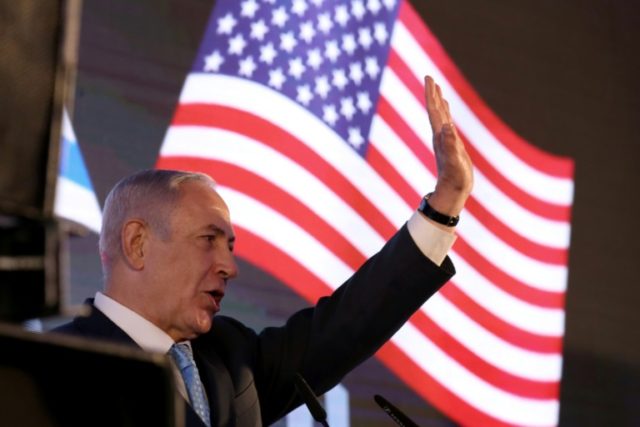TEL AVIV – The occupation of the Palestinians is baloney, empires have conquered and replaced entire populations and no one ever bats an eyelid, Prime Minister Benjamin Netanyahu said at a faction meeting of his Likud party on Monday.
“Power is the most important [component] of foreign policy. ‘Occupation’ is baloney. There were huge countries that have occupied and transferred populations and no one talks about them,” Netanyahu was quoted by Army Radio as saying Monday during the closed-door meeting, in remarks translated by the Times of Israel.
“Power changes everything and it changes our policies vis-a-vis Arab states, and there are other countries on the way,” he added, in an apparent reference to blossoming relations between Israel and some Arab nations.
He also seemed to throw out the notion of land for peace.
“Contrary to the notion that concessions will bring about agreements with the Arabs, concessions will only bring about slight and short-term changes and nothing more,” Netanyahu said about giving up territory to the Palestinians. “What we need to do is advance [talks] on shared interests with Israel based on technological power.”
His comments come on the heels of a state visit to Oman last week where he met with Sultan Sayyid Qaboos bin Said Al Said. Oman has since called on Middle Eastern countries to formally recognize Israel.
A statement from the Prime Minister’s Office described the trip, which was the first official visit since 1996, as “a significant step in implementing the policy outlined by Prime Minister Netanyahu on deepening relations with the states of the region while leveraging Israel’s advantages in security, technology and economic matters.”
Sports Minister Miri Regev was in the United Arab Emirates last week for an international judo competition during which Israel’s national anthem “Hatikva” was played twice.
Communications Minister Ayoub Kara attended a communications conference in Dubai last week and Transportation and Intelligence Minister Yisrael Katz participated in an international conference in Oman.
“We always thought that if we solve the Palestinian problem, this will open doors to peace with the Arab world,” the prime minister said earlier in October. “But it is also likely true in equal measure and maybe more that if we develop ties with the Arab world and normalize relations with them, this will lead in the end to the possibility of reconciliation and peace with the Palestinians.”

COMMENTS
Please let us know if you're having issues with commenting.